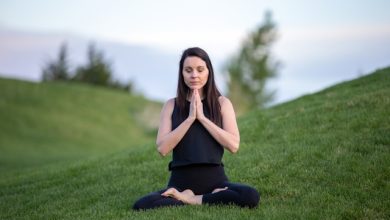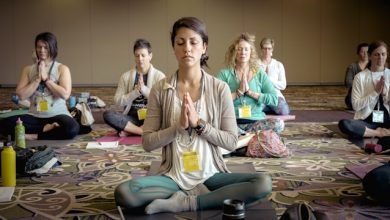Effective Mindfulness Techniques for Stress Relief

Relaxation isn’t merely lounging on the couch and watching TV; it’s about triggering your body’s relaxation response—inducing deep rest to alleviate stress, regulate breathing and heart rate, and restore harmony to your body and mind. You can achieve this through various relaxation methods such as deep breathing, meditation, and exercise.
While some relaxation activities may benefit from professional assistance, most techniques can be practiced independently or with the aid of free audio or affordable apps on your phone. It’s essential to recognize that there’s no one-size-fits-all approach; what works for one person may not work for another. Experimenting with different techniques is necessary to find what resonates with you. Once you discover effective methods, practicing them regularly can reduce everyday stress, improve sleep quality, enhance mood and energy levels, and contribute to overall well-being.
- Deep Breathing: Deep breathing involves taking slow, deliberate breaths to cleanse the mind and body. It’s easily accessible, can be done anywhere, and quickly calms stress. Enhance this technique by incorporating pleasant scents or soothing music. All it requires is a few minutes and a tranquil environment to sit or lie down.
- Meditative Walking: Meditative walking involves slowing down movement and breathing to heighten present-moment awareness. By focusing on steady breathing and subtle body movements, you engage different muscles, strengthen your core, reduce body aches, and improve balance. Practicing meditative walking in serene environments minimizes distractions, allowing for deep concentration.
- Self-Massage: Experience the benefits of professional massage by practicing self-massage at home or exchanging massages with a loved one. Incorporate self-massage into your daily routine, whether at your desk, on the couch, or before bedtime. Utilize scented oils or lotions and combine self-massage with mindfulness techniques for enhanced relaxation.
- Gazing Meditation: Engage in gazing meditation by fixating your attention on an external focal point, such as a candle flame or distant horizon. This practice cultivates open-eyed mindfulness and promotes a calm, balanced state of mind. Gazing meditation enhances meditative skills and contributes to overall relaxation.
- Guided Meditation: Explore guided meditation practices, particularly in the evening or when seeking relaxation. Yoga Nidra, a form of guided meditation, induces deep relaxation, alleviates stress, and facilitates meditation.
- Visualization: Visualization, or guided imagery, involves imagining serene and peaceful environments to promote relaxation. Create mental images of calming scenes, such as a sunny beach or tranquil forest, to evoke feelings of tranquility and serenity. Visualization can be practiced alone or with guided audio recordings.
Benefits of Mindfulness:
Mindfulness practices offer numerous benefits for both physical and mental well-being:
- Emotional Well-being: Mindfulness training reduces feelings of sadness or worry, serving as an effective tool for managing depression.
- Stress Reduction: Mindfulness diminishes the body’s stress response, lowering blood pressure, and strengthening the immune system.
- Pain Management: Individuals practicing mindfulness report reduced severity and impact of chronic pain, enabling greater functionality.
- Attention and Focus: Mindfulness enhances attentional abilities, improving focus, memory, and cognitive function.
- Healthy Eating: Mindfulness techniques aid in reducing overeating and managing weight effectively.
Final Thoughts:
Incorporating relaxation techniques like deep breathing, meditation, and mindful activities into your routine can significantly impact your well-being. These practices promote mental clarity, reduce stress, and strengthen physical resilience. Experiment with various techniques to discover what resonates best with you, and prioritize self-care for a happier and healthier life. Remember, nurturing your mental and physical health is essential for overall wellness and vitality.



